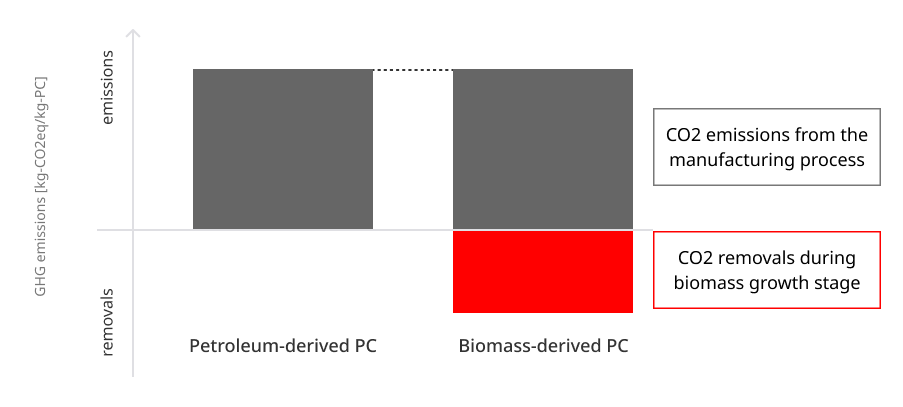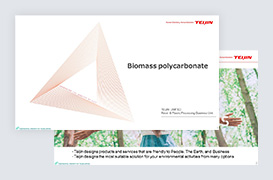Biomass Polycarbonate
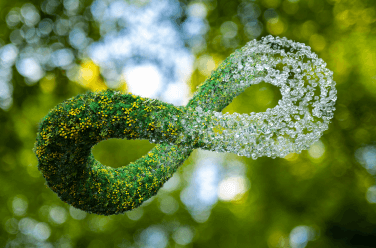
A New Standard for a Sustainable Future
Teijin is driving the adoption of sustainable materials by expanding its portfolio of biomass polycarbonate resins ISCC PLUS certified under the mass balance approach. As the first in Japan to achieve this certification for PC resins, we now provide a stable supply of eco-friendly plastics and a diverse lineup for various applications, supporting the circular economy and reducing carbon footprint.
『The Resin & Plastic Processing Business Unit of Teijin Ltd. pledges and declares compliance with the latest ISCC regulations and ISCC PLUS requirements.』
Features
- Performance Equivalent to Petroleum-Derived Products
It has physical properties equivalent to conventional polycarbonate resin, allowing for a smooth transition from existing products.
- ISCC PLUS Certified
Ensures reliability and traceability across the entire supply chain through the mass balance approach.
- Multiple Product Forms
Available as polymer, compound, sheet, and film to meet diverse application needs.
- Domestic Production and Stable Supply
Manufactured in Matsuyama (Ehime) and Mihara (Hiroshima) , Japan for consistent, high-quality delivery.
Performance of Biomass PC
<Manufacturing Flow from Waste Cooking Oil to Biomass PC>
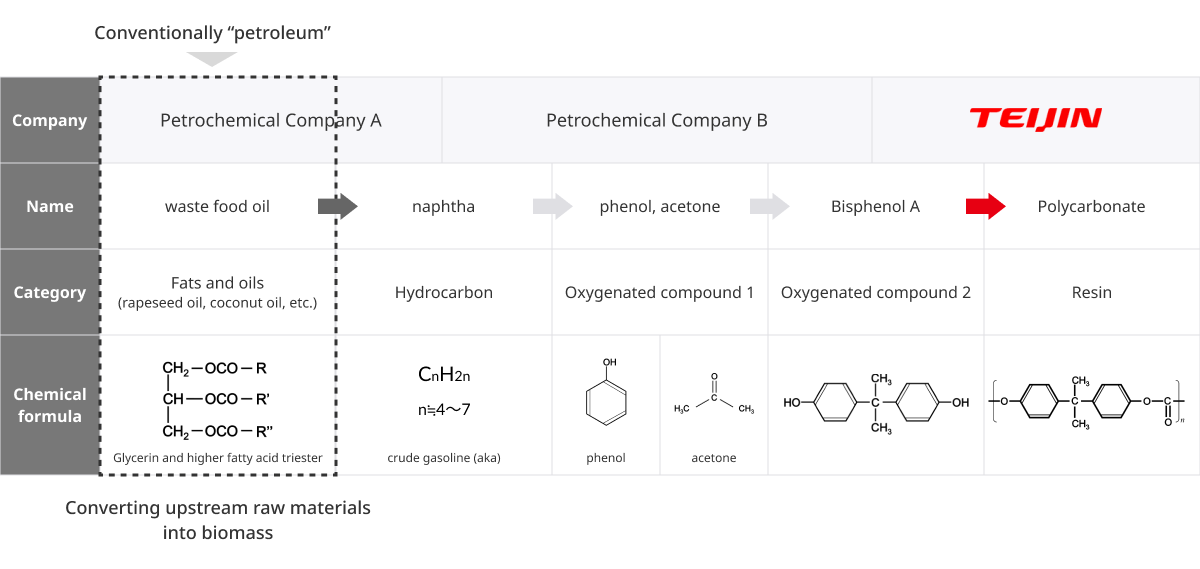
What is the Mass Balance Approach?
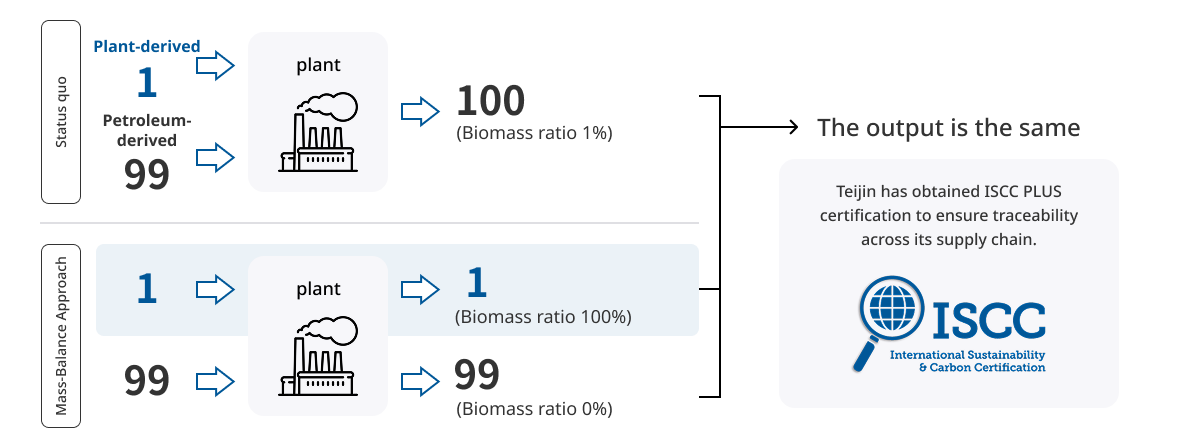
- *Mass Balance Approach
In the processing and distribution stages from raw materials to finished products, when a material with specific characteristics (e.g., biomass-derived feedstock) is mixed with other materials (e.g., petroleum-derived feedstock), the mass balance approach allocates those characteristics to a portion of the product based on the input amount of the specified material.
Source: Bioplastic Introduction Roadmap (Ministry of the Environment, Ministry of Economy, Trade and Industry, Ministry of Agriculture, Forestry and Fisheries, and Ministry of Education, Culture, Sports, Science and Technology, Japan; January 2021)
Greenhouse Gas (GHG) Reduction Effect
Contributes to GHG reduction throughout the entire life cycle compared to petroleum-based polycarbonate.
